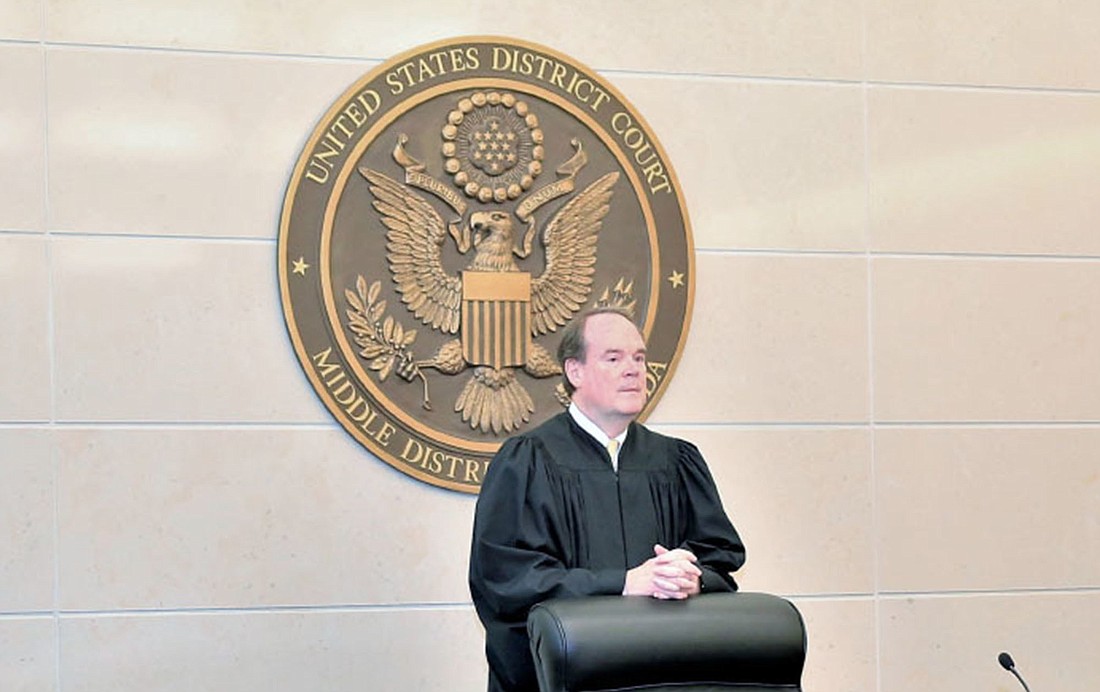
After more than four years of litigation, a complaint filed in federal court against the city of Jacksonville alleging racial discrimination and hostile work conditions was dismissed.
On Aug. 28, U.S. District Judge Timothy Corrigan granted summary judgment in favor of the city and against the plaintiff, Marcel White, and ordered the case file closed.
White is identified in court documents as an employee of the Jacksonville Fire and Rescue Department since 1994. An African-American, he alleged JFRD discriminated against him based on his race in violation of Title VII of the 1964 federal Civil Rights Act and also retaliated against him for making complaints, harassed him and created a hostile work environment in violation of Chapter 760, Florida Statutes.
In 2002, White, whose rank is firefighter, obtained his state inspector’s license and was assigned to JFRD’s Fire Prevention Division.
Inspectors annually evaluate more than 20,000 commercial properties and places of public assembly to ensure compliance with city fire protection codes and state law.
In March 2012, Kevin Jones, the fire prevention quality assurance officer, notified White and the other 12 fire safety inspectors in an email that the inspectors were not issuing written citations for all observed violations and that the practice had to stop as it jeopardized public safety.
Court documents indicate that at the time of the notification, one of the fire inspectors was Hispanic, three were white and nine were African-American, as was the quality assurance officer.
About a month after the email, when Jones had not noticed significant improvement, he sent the inspectors another email. It noted his concern that the low number of citations written compared to the number of inspections performed could be indicative of “misconduct.”
He stated that inspectors are required by law to document fire code violations in writing and that failure to do so would be treated as “willful negligence of duty and/or incompetence.”
A few weeks later, while performing a quality assurance review, Jones determined that in multiple instances, White had failed to properly document expired fire extinguishers and sprinkler systems at locations he had inspected. The review also determined that in some commercial blocks that White reportedly had fully inspected, he had skipped some businesses entirely.
On May 8, 2012, Jones issued to White his findings in a “Rule Infraction Charges” notice, which indicates that disciplinary action may be taken.
White submitted a rebuttal to the charges, stating he was following accepted practices and questioned whether he was being singled out, since no other inspectors were being accused of improper conduct after the review.
The charges and White’s rebuttal were reviewed by JFRD Fire Chief Martin Senterfitt, who determined the matter could involve possible criminal charges and referred it to the State Fire Marshal.
The state completed a six-month investigation that identified possible falsification of records and multiple examples of negligence involving breach of duty. The case was referred to the State Attorney’s Office, which decided not to prosecute it as a criminal matter. Instead, JFRD was advised the findings should be handled as a disciplinary matter, which JFRD elected not to pursue, according to court documents.
White then assured his superiors he was prepared to perform inspections in accordance with the law and he was returned to duty as an inspector.
While the state investigation was underway, White was assigned to a 40-hour week in Tactical Support and not allowed to perform fire safety inspections or work in the field. He forfeited his inspector’s pay and his special assignment pay.
White requested retroactive special assignment and inspector pay for the period while he was reassigned ($3,636.34) but JFRD denied his request because the reassignment was justified in light of the state fire marshal’s findings.
It was also during his reassignment that White filed the discrimination and workforce complaint.
The court found that White could not prove his allegations through direct or circumstantial evidence and that the city followed proper procedure in its handling of White’s civil rights and employment.